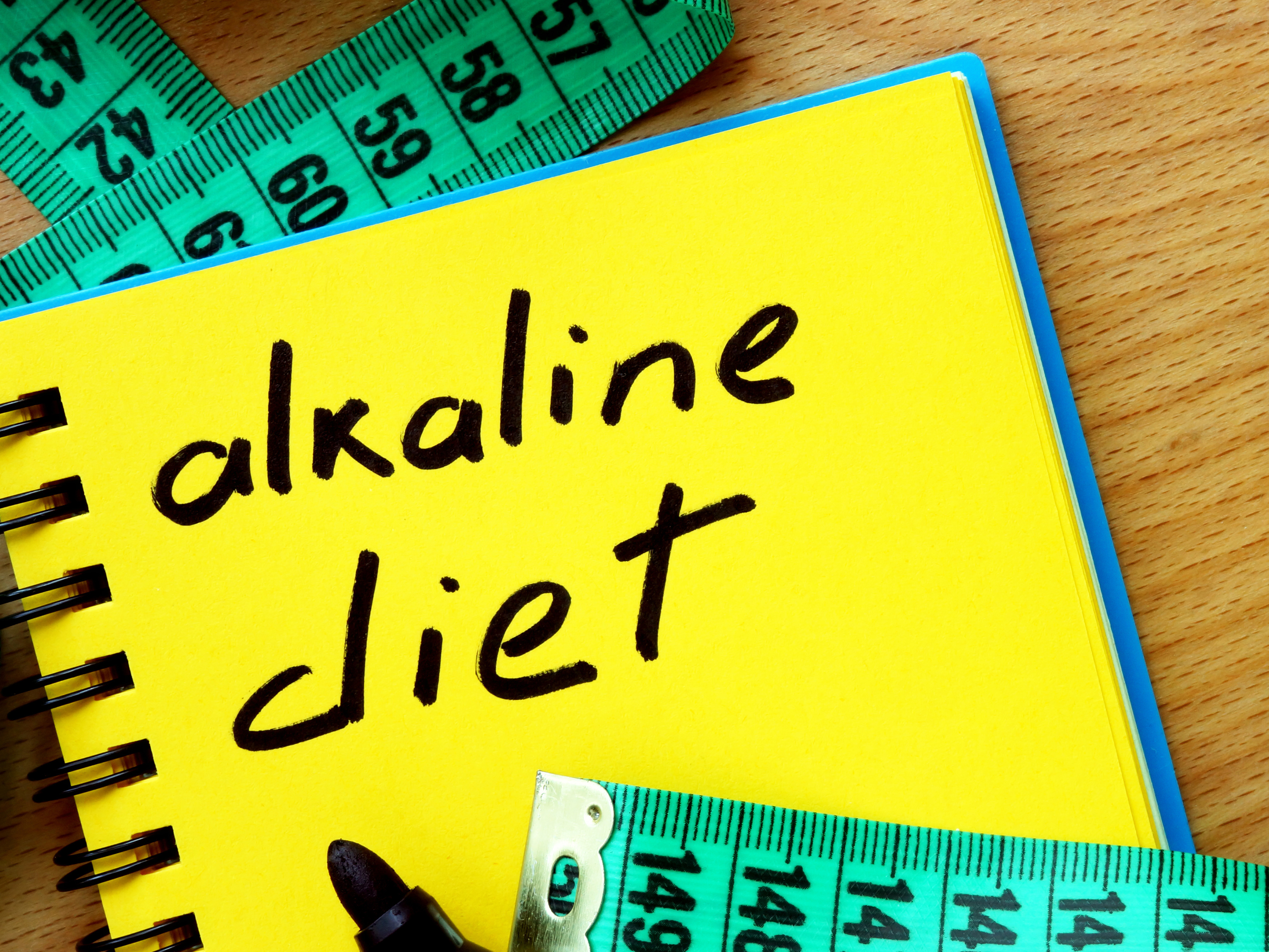Get Easy Health Digest™ in your inbox and don’t miss a thing when you subscribe today. Plus, get the free bonus report, Mother Nature’s Tips, Tricks and Remedies for Cholesterol, Blood Pressure & Blood Sugar as my way of saying welcome to the community!
Alkalize your body to rid toxins and promote wellness

An alkaline body offers numerous health benefits–including detoxification. Adopting a dietary lifestyle of ongoing alkalinization can encourage smaller quantities of toxins to be removed from our bodies on a daily basis.
That’s why in a medical setting, intravenous sodium bicarbonate (an alkaline substance) is used to treat cases of acute drug poisoning. Other studies have shown that alkaline urine enhances the excretion of a number of pharmaceuticals and other chemicals, and inhibits the reabsorbtion by the kidney of xenobiotics (hormone-mimicking chemicals).
We know that cruciferous vegetables, which include broccoli, kale, cauliflower, collards, and Brussels sprouts, have powerful compounds that aid the liver in its Phase I and Phase II detoxification processes, and alkalinize the urine.
Alkalinizing your urine while following a seasonal fall cleanse is a perfect adjunctive combination for safely excreting toxins. One of my favorite recommendations within this approach is to use a lemon olive oil drink, which has an alkalizing effect and also stimulates the liver and gall bladder to discharge toxins.
The most safe and natural way to increase your alkalinity is to balance your diet–and last week I listed food information to help you do that.
Some advocates of alkalinizing tend to make proteins and carbohydrates into the “bad guys.” This is an extreme view that doesn’t acknowledge the importance of these types of foods for normal metabolism, immune system support, muscle repair and building, ongoing detoxification, and energy metabolism.
However, the carbohydrate category in the Western diet tends to be highly processed, lacking nutritional value and containing chemical additives. Similarly, the protein category in the Western diet tends to be overused with large portions of commercial animal proteins.
An excellent alternative is to consume organic nutrient-dense complex carbohydrates, along with smaller portions of organic and grass-fed animal protein sources and high quality plant protein sources, which are less acidic than their over-processed, commercial counterparts. These substitutions are not problematic in terms of alkalinization; however, they do need to be balanced with frequent abundant portions of fresh organic alkalizing foods, mainly vegetables. You can ensure you’re achieving an alkalinizing balance by testing your pH levels regularly.
Increase your intake of vegetables and fruits high in alkalinizing minerals, such as potassium, magnesium and calcium. Foods that provide excellent sources of potassium include red potatoes, avocado, Brussels sprouts and many others. Green leafy vegetables have high magnesium content, and broccoli, sea veggies, collards, chard other greens are rich in calcium.
An alkalinizing mineral broth can be easily made by combining potatoes, celery, parsley, green beans, zucchini, beet tops, kale, onions, and seaweed in a full pot of water, simmering for an hour or two, and pouring off the liquid for use. This makes a wonderful mineral-rich liquid for a seasonal fall cleanse. Other alkalinizing food sources include liquid chlorophyll, green powder supplements which can be added to smoothies, soups, or warm water, or the highly alkaline umeboshi plum paste, which is a sour plum commonly used in Japanese cuisine.
Which supplements can I take to alkalinize?
While sodium bicarbonate (baking soda) is often recommended for alkalinizing, studies show that potassium bicarbonate and potassium citrate have a much more potent protective effect on reducing the excretion of calcium in the urine.
Potassium chloride on the other hand, which is most commonly found in processed foods, does not have the same alkalinizing ability as potassium citrate. Studies conducted on post-menopausal women show that potassium chloride has a detrimental effect on bone mineral density, while potassium citrate increased density and was more effective in reducing calcium excretion in the urine.
Products like “Alkala” provide a combination of potassium and sodium bicarbonates, and can be used to help maintain alkaline urine. Always check with your health care provider before using any concentrated mineral supplement such as this. Some conditions or drugs can cause an accumulation of potassium or sodium in the body, which can be dangerous for some individuals.
How can you test and monitor your pH levels?
There are various schools of thought on this subject, with some clinicians advising the use of urine and some advising saliva testing. pH paper or test strips are widely available at your local pharmacy or online, so you can experiment with both body fluids to see for yourself what the correlations are for your system.
A fasting urine sample will give the most accurate reading. However, a first-morning urine may be overly acidic due to the retention of urine in the bladder for an extended period of time, so a second-morning urine, prior to breakfast, can give a good baseline.
It is also important to note that any one reading has limited value, being just one data point, and since you are looking for a pattern you should check your urine several times throughout the day and record your results over time.
Think of yourself as your own laboratory, and experiment with different foods and testing times. Two hours after a meal is a good time to test to see how your dietary intake has impacted your pH. Studies have shown that urine pH can show modifications in as little as two hours after a meal.
Your goal is to be in the “green” or slightly alkaline range, which should be fairly easily accomplished by consuming a diet high in green leafy vegetables (alkalinizing foods) and lower in proteins and carbohydrates (acidifying foods).
By making these relatively simple yet important changes in your diet, you will quickly feel the benefits of increased alkalinization, such as decreased inflammatory symptoms and increased energy. For more diet recommendations and tips for a successful fall cleanse, visit www.dreliaz.org.
Editor’s note: Did you know that when you take your body from acid to alkaline you can boost your energy, lose weight, soothe digestion, avoid illness and achieve wellness? Click here to discover The Alkaline Secret to Ultimate Vitality and revive your life today!













